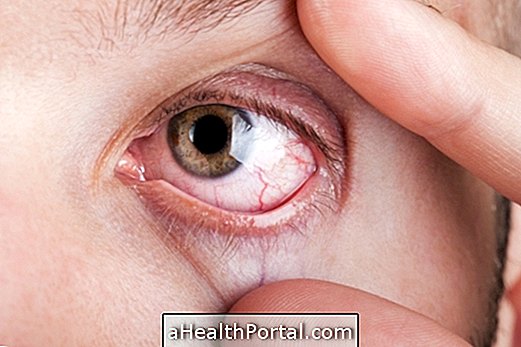Insomnia in the elderly characterized by difficulty initiating sleep or continuing to sleep, is common from age 65, but can be alleviated with simple measures, use of insomnia tea, soothing juices or medications.
Insomnia causes decreased concentration, attention and memory, and increased sleepiness during the day, which leads to imbalance and increases the risk of falls, accidents, injuries and fractures.
Older people with insomnia usually become dependent on sleeping pills because they use them in excess and often without medical advice and can not sleep without them. See some examples of these medicines in: Sleep Remedies.

How to treat insomnia in the elderly
Treatment for insomnia in the elderly should be indicated by the sleep disorder physician and includes identifying the cause of insomnia and then initiating the correct treatment. Once the cause is identified, treatment can be done with:
1. Good sleep habits
To ensure a good night's sleep is advised:
- Do not smoke;
- Avoid drinking coffee, black tea, coke and alcohol. However, 1 glass of red wine at dinner is recommended;
- Give preference to light meals for dinner. See more examples on What to Eat for Insomnia.
Another important advice to avoid worsening insomnia is not to doze off in the room and go to bed only when you feel very sleepy and you are sure that lying down on the bed will sleep.
2. Home Remedies
Some good home remedies for insomnia in the elderly are passion fruit juice, chamomile tea and valerian capsules, which are natural and possess sedative properties, favoring sleep without side effects. These can be used at the same time as the medications because they complement the treatment against insomnia. Here's how to prepare in: Home remedy for insomnia.
Watch nutritionist tips to beat insomnia:

3. Insomnia Remedies
Some names of sleeping pills that the doctor may indicate are Lorax and Dormire, but he may also prescribe medications indicated for other purposes, but which also favor sleep like the antihistamines: Periatim and Fenergam; antidepressants: Amytril and Pamelor; or sedatives: Stilnox.
What can cause insomnia in the elderly
Insomnia in the elderly is mainly due to old age, chronic diseases such as heart failure or diabetes, use of medications and habits such as drinking too much coffee or consuming too much alcohol. Other causes can be:
- Routine change, such as in case of hospitalization or travel;
- Side effects of some antihypertensive drugs, antidepressants and bronchodilators;
- Excessive use of sleeping pills;
- Chronic respiratory diseases, such as sleep apnea or asthma.
Other possible causes may be anxiety, depression or dementia, but since there are many causes of insomnia in the elderly, it is very important to first identify the cause of insomnia before the doctor indicates the appropriate treatment.























